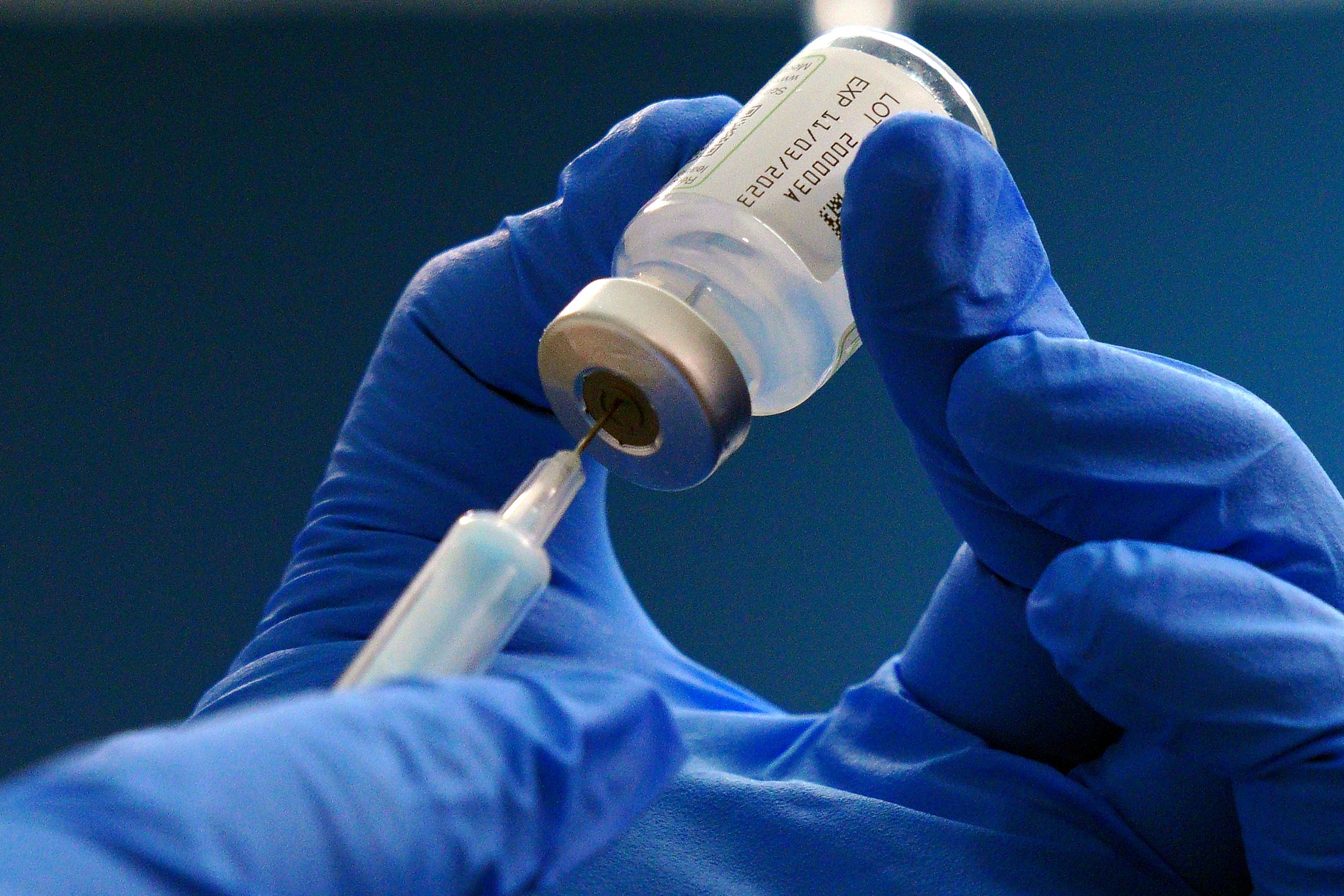The new RSV vaccine is vital for babies and the NHS this winter
Analysis: A new vaccine has the potential to hugely benefit the NHS, which is hit with 30,000 hospital admissions for children each year due to the RSV virus, writes Rebecca Thomas


Your support helps us to tell the story
From reproductive rights to climate change to Big Tech, The Independent is on the ground when the story is developing. Whether it's investigating the financials of Elon Musk's pro-Trump PAC or producing our latest documentary, 'The A Word', which shines a light on the American women fighting for reproductive rights, we know how important it is to parse out the facts from the messaging.
At such a critical moment in US history, we need reporters on the ground. Your donation allows us to keep sending journalists to speak to both sides of the story.
The Independent is trusted by Americans across the entire political spectrum. And unlike many other quality news outlets, we choose not to lock Americans out of our reporting and analysis with paywalls. We believe quality journalism should be available to everyone, paid for by those who can afford it.
Your support makes all the difference.From Sunday thousands across England and Scotland will be eligible to get a vaccine to protect them from respiratory syncytial virus (RSV) as the government rolls out a national programme ahead of winter.
The vaccine will be available to those over 75 and pregnant women over 28 weeks to help protect their babies. If mothers are vaccinated during pregnancy, the antibodies they make pass across the placenta to the baby to protect for the first six months after birth.
The previous government faced repeated calls in 2023 and 2024 to push out the vaccine for RSV, which drives 30,000 hospital admissions of babies each winter and leads to dozens of deaths.
A study funded by Sanofi, suggests in 2022-23 RSV admissions cost the NHS approximately £91m.
RSV in infants, under one, can be particularly harmful as it can cause bronchiolitis, which leads to the inflammation of the small airways and significant breathing difficulties. In older adults, it is a cause of acute respiratory illness.
Last September The Independent revealed a stark warning from doctors that delays by ministers to roll out the vaccine would put children’s lives at risk and would heap pressure on NHS services at risk over winter.
Last winter was particularly bad for RSV among the under fours, who were the worst affected. Figures show at the height of the virus season at the end of November there were 44.83 admissions per 100,000 to ICUs for under four-year-olds.
Recent analysis suggests a new vaccination programme could prevent 5,000 hospital admissions and 15,000 A&E attendances, the UK Health Security Agency has said.
According to the agency, a programme could lead to 70,000 fewer infections in children under 12 months in the future and 20,000 fewer GP consultations.
In May this year, as other infections such as Strep A continued to circulate, The Independent also revealed warnings across several areas that hospitals had run out of paediatric intensive care beds.
It is well known the NHS is not awash with paediatric beds – or hospital beds in general – and so anything that might lessen admissions will be welcome.
Dr Mike McKean, vice-president for policy at the Royal College of Paediatrics and Child Health, said when the vaccine programme was announced it has the “potential to transform child health services during winter months”.
A reduction in paediatric hospital admissions for RSV could allow services to focus on other children and young people requiring emergency care during the winter months.
Waits for children, as with all emergency care waits, are getting progressively worse, while it used to be uncommon for waits to breach 12 hours for children, they are now more frequent.
Any ease up on A&E admissions may also allow hospitals to continue some waiting list work for children. As revealed by this publication, the children’s waiting list backlog has grown at a higher rate compared to adults.
Has the programme been announced in enough time to have an impact this winter? The announcement came in June, giving the NHS two months to drum up awareness about the vaccine among parents and older adults.
This year has been filled with warnings over low vaccine uptake for other illnesses that impact children. such as whooping cough or measles, and so officials may be concerned about uptake of RSV also.
However, should uptake be affective, the annual programme has the potential to have a significant impact on the NHS, particularly in children’s service, in winters to come.
Join our commenting forum
Join thought-provoking conversations, follow other Independent readers and see their replies
Comments